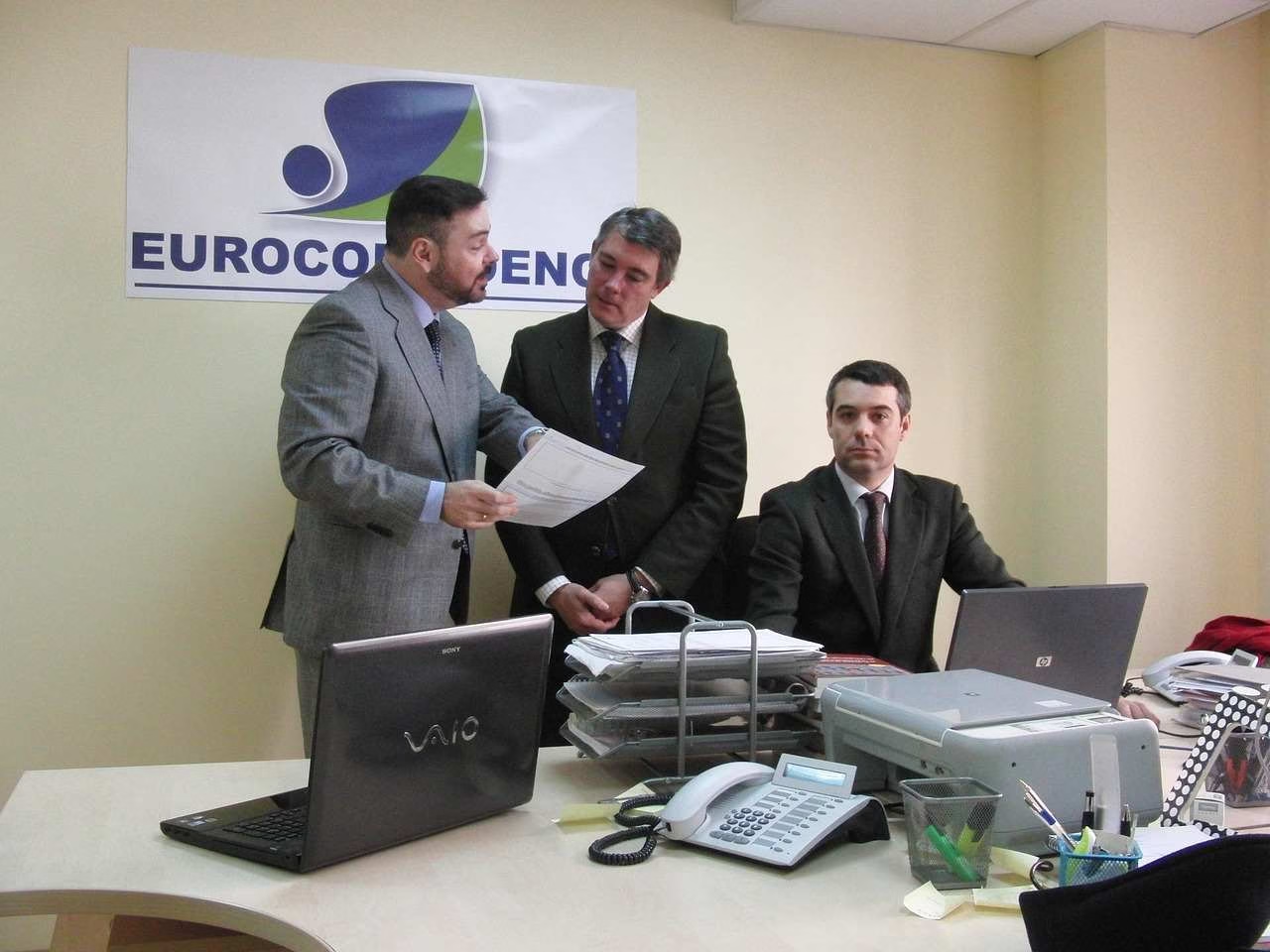

Corporate tax has become a key part of the UAE’s financial system. With the introduction of a 9% corporate tax rate, businesses must now understand how these new rules apply to them.
Some companies must pay tax, while others may qualify for exemptions. Knowing where your business stands is essential for compliance, tax planning, and financial efficiency.
This article breaks down who is subject to corporate tax and who is exempt, helping business owners, entrepreneurs, and investors make informed decisions.
Whether your company is based on the mainland or in a free zone, it is crucial to understand how the tax rates apply to different entities.
Corporate tax in the UAE is designed to align with international tax standards while maintaining the country’s appeal as a business-friendly destination.
The introduction of a 9% corporate tax applies to companies generating profits above a certain threshold, ensuring that businesses contribute fairly to the economy.
However, the UAE government has implemented exemptions and incentives to support small businesses, startups, and strategic industries.
The UAE government has carefully structured the corporate tax system to ensure that businesses contribute fairly without being overburdened.
The tax rate remains one of the lowest globally, making the UAE a competitive jurisdiction for both startups and large corporations.
Small businesses and entrepreneurs benefit from a tax-free threshold of AED 375,000, allowing them to grow without immediate tax obligations.
For larger businesses, corporate tax encourages better financial discipline, improved record-keeping, and strategic tax planning.
Companies that structure their operations effectively can legally minimize their tax exposure while staying fully compliant with Federal Tax Authority (FTA) regulations.
The key lies in understanding which revenue streams are taxable, which expenses are deductible, and how to optimize corporate structures for tax efficiency.
The type of business entity determines how corporate tax applies. Mainland businesses are fully subject to the corporate tax regime, while free zone companies may still benefit from 0% tax on qualifying income.
However, free zone businesses must carefully navigate economic substance requirements and tax regulations to ensure they retain their tax benefits.

Multinational companies operating in the UAE must also comply with OECD global tax policies, particularly transfer pricing regulations that prevent profit shifting.
Companies engaged in cross-border transactions, inter-company dealings, or holding structures must ensure their financial records justify all tax positions to avoid regulatory scrutiny.
Staying compliant with corporate tax laws is not just about filing returns on time—it is about adopting a proactive tax strategy. Companies must maintain accurate financial records, justify tax deductions, and align with international reporting standards.
The FTA has emphasized the importance of transparent financial reporting, meaning that businesses must ensure all revenue sources and expense claims are fully documented and defensible.
One of the most effective ways to ensure compliance is by conducting regular tax audits within the company.
Businesses that review financial statements, reconcile transactions, and analyze tax obligations proactively will be in a stronger position during external audits. Those that fail to comply risk financial penalties, legal consequences, and reputational damage.
Understanding the corporate tax system allows businesses to implement strategic tax planning techniques that minimize liabilities while ensuring compliance.
One of the most effective strategies is expense optimization, ensuring that all eligible deductions—such as employee salaries, rent, and operational costs—are properly recorded to lower taxable profits.
For businesses operating both in the UAE and internationally, tax planning involves managing cross-border tax obligations, leveraging double tax treaties, and structuring transactions efficiently.
Companies must also consider transfer pricing documentation to justify inter-company pricing models, preventing tax authorities from questioning related-party transactions.
The introduction of corporate tax is just the beginning. As the UAE continues to align with global tax standards, new policies and regulations will evolve.
Businesses must stay informed about changes in tax exemptions, reporting requirements, and compliance obligations to ensure they remain in good standing with tax authorities.
Companies that invest in professional tax advisory services will have a significant advantage in navigating the evolving tax landscape.
Proactive tax management, compliance reviews, and expert financial planning will ensure that businesses not only meet their tax obligations but also optimize their financial strategies for long-term success.
Corporate tax applies to businesses that earn taxable profits above AED 375,000. Companies operating on the mainland are fully subject to this tax, making it crucial for them to plan their finances carefully.
The tax is calculated on net profit, meaning businesses can deduct allowable expenses before determining their final tax liability.
All mainland companies must register for corporate tax, regardless of their profitability. Businesses earning above the AED 375,000 threshold are taxed at 9%, while those below it are exempt.
This structure supports small businesses by reducing their tax burden while ensuring that larger corporations contribute to public revenue.
For mainland businesses, tax compliance involves filing annual tax returns, maintaining proper financial records, and adhering to transfer pricing rules for related-party transactions.
Companies that fail to meet these requirements may face penalties, making it essential to implement robust accounting and tax management systems.
Large multinational corporations with revenues exceeding €750 million fall under the OECD’s global minimum tax of 15%. This rule prevents tax avoidance by ensuring that large companies contribute a fair share, regardless of where they operate.
Businesses in the UAE that meet this threshold must comply with international reporting standards and submit detailed financial disclosures.
Multinational businesses operating across different jurisdictions must also consider transfer pricing regulations to ensure that intercompany transactions are conducted at fair market value.
Proper tax planning helps companies reduce unnecessary tax exposure while maintaining full compliance with UAE and international tax laws.

While corporate tax applies to most businesses, certain entities remain exempt based on their industry, structure, or revenue sources. The UAE government has introduced these exemptions to support economic diversification, encourage foreign investment, and protect essential industries.
Free zones continue to play a vital role in the UAE’s business landscape, offering tax incentives, 100% foreign ownership, and regulatory advantages.
Qualifying free zone companies can still enjoy a 0% corporate tax rate on eligible income, provided they meet the Federal Tax Authority’s (FTA) compliance requirements.
To maintain their tax-free status, free zone businesses must demonstrate substantial economic presence, conduct permitted activities, and ensure that mainland transactions remain within the legal framework.
Companies failing to meet these conditions may lose their tax benefits and become subject to the 9% corporate tax.
Certain businesses and organizations are fully exempt from corporate tax due to their nature, role in the economy, or alignment with government policies. These exemptions are designed to support public interest sectors, non-commercial activities, and specific industries that contribute to national development.
While most businesses must register for corporate tax, exempt entities do not have to pay corporate tax on their income as long as they meet the eligibility criteria.
Government entities and companies wholly owned by the UAE government that carry out sovereign or strategic activities are automatically exempt from corporate tax. This includes government departments, ministries, and municipal authorities engaged in non-commercial activities.
The exemption also extends to certain government-related businesses that provide essential public services or infrastructure projects that align with national priorities.
However, if a government-owned company engages in commercial activities that compete with private businesses, it may be required to register for corporate tax and pay the applicable rate on taxable income.
The distinction between exempt and taxable activities must be clearly defined to ensure compliance with UAE tax laws.
Businesses involved in the extraction, production, and sale of natural resources such as oil, gas, and minerals are generally exempt from federal corporate tax.
These industries are already subject to separate taxation agreements with individual emirates, ensuring that they contribute to government revenues through alternative tax structures.
To qualify for this exemption, companies must obtain the necessary licenses and permits from the UAE authorities regulating extractive industries.
While these businesses are exempt from corporate tax at the federal level, they may still be required to comply with other tax obligations under local emirate laws.
Non-profit organizations that operate for charitable, humanitarian, cultural, or religious purposes may qualify for full exemption from corporate tax. This includes registered charities, social welfare groups, and institutions that support public causes.
However, to maintain this exemption, these entities must not engage in profit-generating activities that compete with commercial businesses.
Organizations seeking tax-exempt status must be officially recognized by the Federal Tax Authority (FTA) and provide documentation proving that their activities align with public benefit objectives.
Any commercial income earned by a charity or non-profit organization may be subject to corporate tax if it does not directly support the entity’s core mission.

Small businesses and startups are a key focus of the UAE’s corporate tax system, with specific policies designed to ease the financial burden on emerging companies. The corporate tax framework supports entrepreneurial growth while ensuring that businesses remain compliant with tax regulations.
Businesses with taxable profits below AED 375,000 are completely exempt from corporate tax. This threshold ensures that small businesses and startups can grow without immediate tax burdens, allowing them to reinvest earnings into expansion, hiring, and operational improvements.
Even if a business earns below this threshold, it must still register for corporate tax and file tax returns as required. The exemption applies only to the tax due, not the registration or reporting obligations.
Companies expecting to cross the taxable income threshold in the near future should prepare for corporate tax by implementing proper accounting systems and financial planning.
Businesses operating in the UAE can benefit from strategic tax planning to ensure they minimize tax liabilities while remaining compliant with corporate tax laws. Even if a company is subject to corporate tax, there are ways to legally reduce the amount payable by optimizing expenses, structuring transactions efficiently, and leveraging tax exemptions.
Proper planning ensures businesses take full advantage of the available tax relief while maintaining transparency in financial reporting.
One of the most effective ways to lower corporate tax liability is by deducting legitimate business expenses before calculating taxable profits.
The UAE tax framework allows businesses to subtract costs directly related to their operations, including employee salaries, rent, marketing expenses, business travel, and depreciation on assets.
By ensuring that all eligible expenses are recorded correctly, companies can significantly lower the portion of income subject to corporate tax.
For businesses investing in infrastructure, equipment, or technology, depreciation can be applied over several years to gradually reduce taxable income.
This approach spreads the tax benefit over multiple financial periods, helping businesses manage their liabilities efficiently.
Working with a tax consultant or financial advisor ensures that all deductions comply with UAE tax regulations and are properly documented to avoid compliance issues.

Free zone companies that qualify for the 0% corporate tax rate must carefully structure their operations to ensure they continue meeting the Federal Tax Authority (FTA) compliance criteria.
Businesses that engage in mainland transactions or generate income outside permitted activities may become ineligible for free zone tax benefits.
To maintain their tax-exempt status, free zone entities should ensure that most of their income comes from qualifying transactions and that they have a substantial presence within the free zone.
This includes maintaining a physical office, hiring employees, and demonstrating active business operations. Failing to meet these conditions could result in losing the tax exemption and being subject to the standard 9% corporate tax rate.
For businesses with both free zone and mainland operations, tax planning should focus on structuring transactions in a way that minimizes tax exposure while remaining compliant.
Properly allocating income streams, managing inter-company transactions, and adhering to transfer pricing rules can help businesses retain as many tax benefits as possible.
While businesses focus on reducing their tax burden, compliance with UAE tax laws remains critical. The Federal Tax Authority (FTA) has introduced strict penalties for non-compliance, including late tax filings, incorrect tax calculations, and failure to maintain accurate records.
Companies that do not adhere to these regulations may face financial fines, legal actions, or even loss of tax exemptions.
To avoid penalties, businesses must ensure that they file tax returns on time, submit accurate financial reports, and maintain detailed accounting records.
Implementing a structured tax compliance plan with the help of tax professionals ensures that businesses remain aligned with regulatory requirements while optimizing their tax strategies.
The UAE’s corporate tax system continues to evolve, with updates expected as the economy grows and tax policies are refined.
Businesses must stay informed about new regulations, upcoming tax policy changes, and amendments to existing rules to ensure continued compliance and tax efficiency.
As international tax laws shift toward greater transparency and anti-avoidance measures, businesses operating in multiple jurisdictions must be prepared to comply with evolving global standards.
The UAE’s corporate tax system is closely linked to global tax reforms, particularly initiatives set by the Organization for Economic Co-operation and Development (OECD).
As international tax rules continue to tighten, businesses operating in multiple jurisdictions must align their financial structures with OECD guidelines to avoid non-compliance risks.
The OECD’s global minimum tax rule, which applies a 15% minimum tax rate on multinational enterprises with revenues exceeding €750 million, is one of the most significant developments affecting large corporations.
While the UAE’s corporate tax rate remains 9%, businesses that fall under the OECD’s tax framework must assess how these rules impact their global tax liability.
Companies with international operations should review their tax structures, assess potential exposure to higher tax rates, and adjust financial strategies accordingly to maintain compliance and optimize tax efficiency.
As the Federal Tax Authority (FTA) strengthens its corporate tax enforcement mechanisms, businesses must expect greater scrutiny over transfer pricing policies, inter-company transactions, and financial reporting accuracy.
Companies engaged in cross-border trade, related-party dealings, or multinational operations must ensure that their transfer pricing documentation meets UAE and OECD standards to avoid tax disputes and penalties.
Future developments in UAE corporate taxation may introduce stricter documentation requirements, enhanced transparency measures, and expanded tax audit processes.
Businesses that proactively strengthen their internal tax controls, maintain accurate financial records, and implement clear pricing structures for inter-company transactions will minimize compliance risks.
Investing in regular tax audits and expert advisory services will ensure that companies are prepared for any regulatory changes that impact transfer pricing and financial disclosures.
Free zones have historically offered 0% corporate tax benefits, making them an attractive choice for international investors and regional businesses.
However, as the UAE refines its corporate tax policies, changes to free zone taxation may emerge, particularly in sectors where businesses engage in mainland transactions or cross-border activities.
The government may introduce new eligibility requirements for free zone tax incentives, ensuring that businesses genuinely contribute to economic substance requirements.
Companies operating in free zones must remain vigilant about compliance standards, particularly regarding business presence, operational activities, and reporting obligations.
Businesses should regularly review free zone tax laws, reassess their tax status, and implement proactive tax planning to maintain compliance and avoid unexpected tax liabilities.
Understanding who pays corporate tax and who is exempt in the UAE is essential for businesses to plan their finances effectively.
Mainland companies, large corporations, and multinational businesses must comply with the 9% corporate tax rate, while qualifying free zone businesses and exempt entities can benefit from tax relief.
Proper tax planning, strategic structuring of business operations, and compliance with tax regulations can help businesses minimize liabilities while remaining in full alignment with UAE laws.
Whether a business is fully taxable or qualifies for exemptions, maintaining accurate financial records and seeking professional tax guidance is the best way to navigate the evolving corporate tax landscape.
For expert assistance in corporate tax registration, compliance, and tax optimization strategies, contact Protax Advisors today.
Our team of tax professionals will help you develop a tailored tax plan that maximizes savings and ensures full compliance with UAE tax laws.




Schedule a consultation call and learn how our expertise in accounting and tax services can benefit your business.